As with every discipline, engineering is faced with unique challenges when it comes to teaching, establishing learning goals and bringing those goals to life. Educators like Greg Evans, a chemical engineer, researcher and professor at the University of Toronto, are facing these challenges head on.
In addition to his research on Ontario’s air quality and pollution, Evans’ interests also include investigating the effectiveness of certain leadership and teaching methods including teaching team effectiveness in large classrooms. It is no surprise, then, that he has been awarded a prestigious 3M Teaching Fellowship for 2017. This year, three out of the ten 3M Teaching Fellows are engineers – Prof. Greg Evans, Prof. Gordon Stubley of the University of Waterloo, and Prof. Alan Steele of Carleton University. For Prof. Greg Evans, this marks a “coming of age” for engineering.
“I think this reveals the increased importance teaching is playing in engineering, as well as some major changes in Canadian engineering education as a whole,” Prof. Evans notes. “Firstly, there’s been an increased emphasis on technical design, as well as the development of professional skills and competencies for the workplace, and a greater promotion of lifelong learning beyond the classroom.”
Prof. Stubley notes that milestones such as the 3M could be a strong indicator of an increasing acknowledgement of the quality of engineering education. “Although,” he jokes, “perhaps there’s also an aspect of us getting better at articulating what’s special about what we do.”
While engineering is often thought of as separate areas of study, such as ‘civil’, ‘mechanical’, or ‘chemical’, it’s actually quite interdisciplinary. The University of Toronto’s Dean of Applied Science & Engineering, Cristina Amon, shed some light on this reality. “Engineering education is unique in that we prepare our students to create innovative technologies and meet challenges we can’t yet imagine — complex, open-ended issues that require a diverse set of competencies, in a wide range of fields from healthcare and sustainable energy to robotics.”
However, Prof. Evans notes that the uniqueness of engineering’s teaching approach is not without its challenges. “There tends to be a different mindset in students and colleagues of engineering – a tendency towards positivist perspectives and an emphasis on the equal sign,” he says. “So teaching has to account for this – teaching is about making [the students] realize it’s actually not just about the numbers, it’s just as much about making judgements. It’s about people, too.”
In addition to teaching students to look beyond facts and numbers, Prof. Evans emphasizes how engineering instruction has to account for and prepare students for the industry. In order to do so, it is important to not only integrate workplace competencies into the curriculum but ensure they are up to date.
“Since the 1990s, and the rise of the information age, there has been a change in the competencies required of graduates and students entering the workplace. There’s an information overload and we need more graduates who are competent at handling and processing this information,” Prof. Evans notes.
This June, the University of Toronto will host the Canadian Engineering Education Association Conference, showcasing the work of both industry and academia by bringing together educators and students at the forefront of cutting-edge engineering education and leadership.
Dean Amon anticipates that this will play to U of T’s strengths, as the conference’s theme this year is ‘Innovation and Diversity in Engineering Education’. “At U of T Engineering, diversity is our strength — it sparks innovation, deepens the engineering creative process and enriches the profession. We strive to foster an inclusive learning environment where our students and faculty members can voice a plurality of viewpoints and opinions, and work together to address complex, multi-faceted engineering challenges,” she states.
Prof. Evans agrees, adding that this is the perfect platform to increase student engagement and overall colleague collaboration. “We’re hoping that this will lead to greater opportunities for collaboration given our close proximity to other schools like UOIT, Ryerson and York, with colleagues that may not have had the opportunity to attend the conference before due to distance.”
Similarly, Prof. Stubley draws attention to the potential innovation that could spark when people dedicated to their field congregate. “When you have around 200 people who share a passion, grouped together, no matter what happens, I’m sure good, exciting things will result.”
As for student involvement, “There’s a growing number of graduate students participating in the conference,” Prof. Evans explains. “This year there is also an undergraduate poster competition to help encourage undergraduate participation, as well as a video competition to celebrate Canada’s 150 and the history of engineering in Canada that’s open to both high school and undergraduate students.”
Dean Amon notes that this focus on student involvement and contribution can be seen beyond U of T’s approach to the Canadian Engineering Education Association Conference. “I believe mentorship is an enriching component of student experiences and life-long learning, and our Faculty has built a robust mentorship pipeline to ignite and support a love of engineering from elementary school, through university and beyond. For example, our Girls Leadership in Engineering Experience (GLEE) event brings together talented young women who have offers of admission to meet current students and professors, and learn more about our programs.”
Mentorship is not only important for student growth and learning, but is also immensely valuable for the mentor. Indeed, Prof. Evans emphasizes that some of the most rewarding moments of teaching engineering come from the insights he gleans from his own students. “How they approach or see a particular problem or scenario can be illuminating. Perhaps there’s an aspect or angle I’ve missed.” He also notes the joy that comes from seeing what alumni have accomplished upon graduating.























